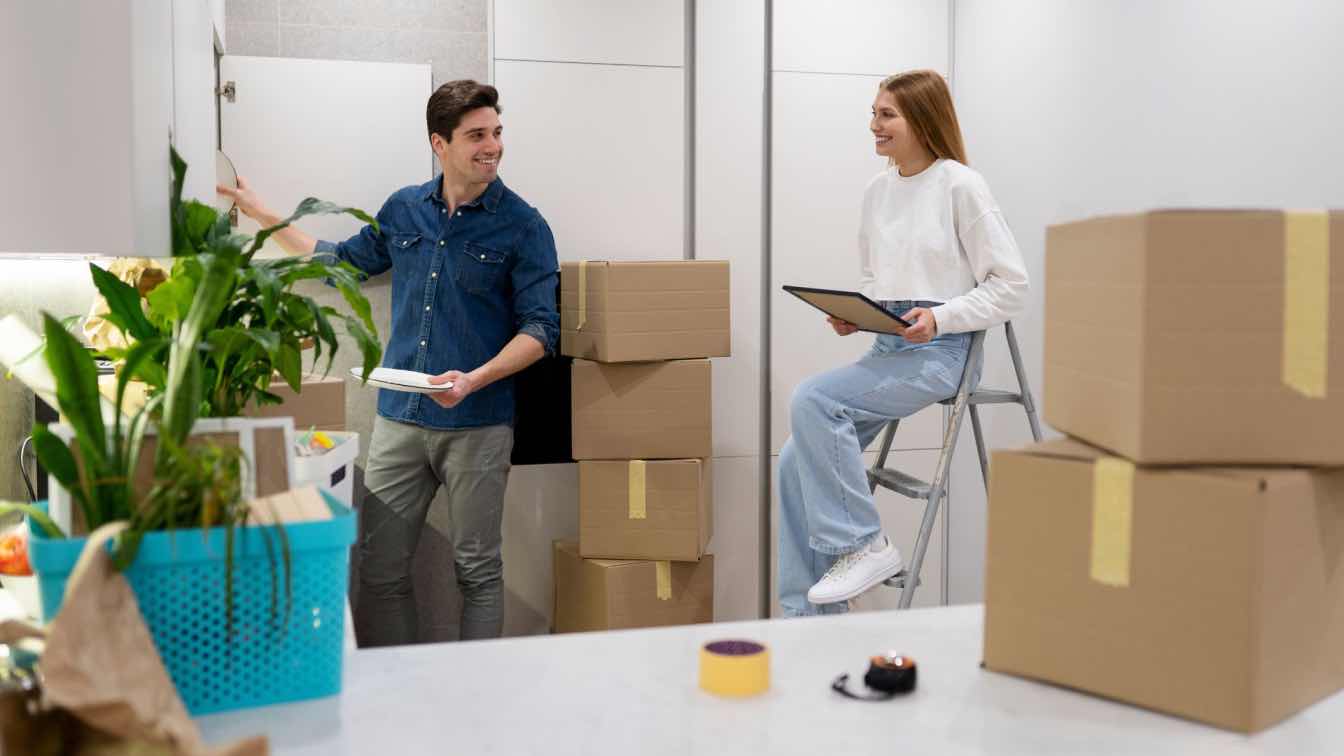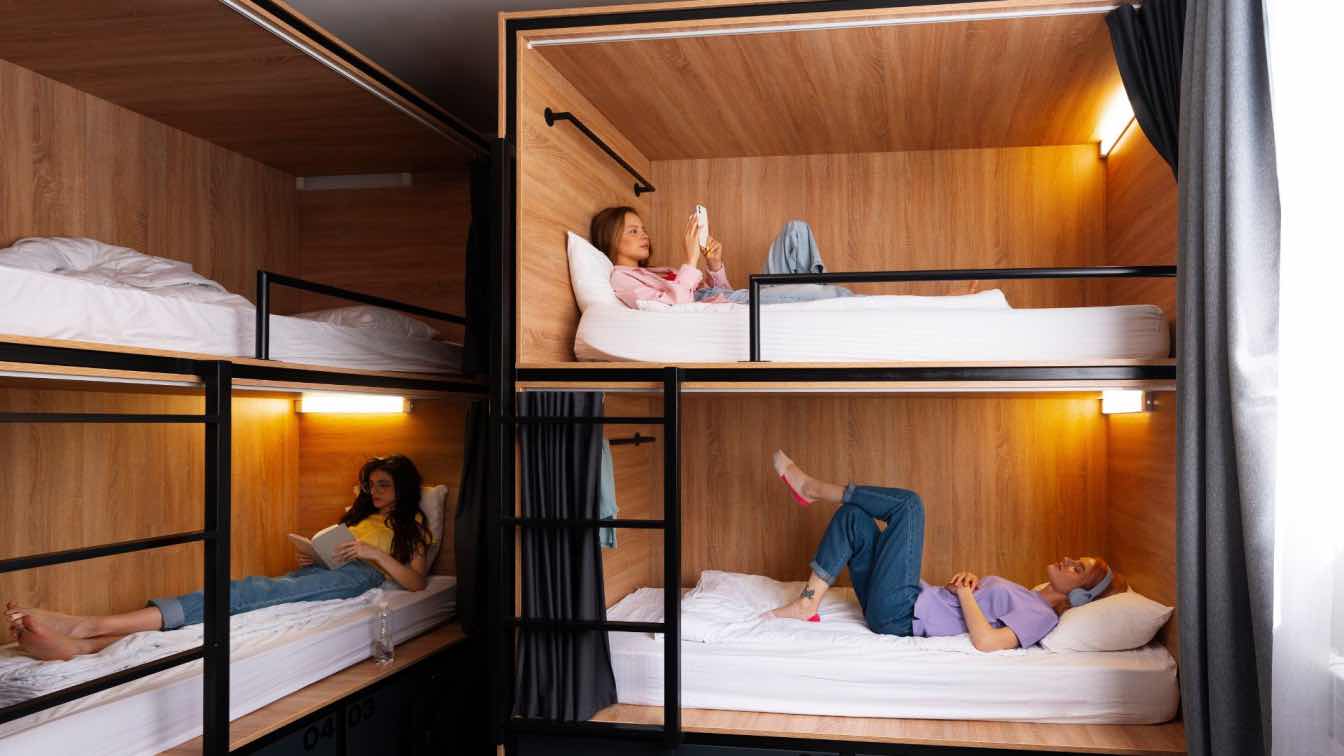Have you ever looked around your home and thought, “This shouldn’t take too long to pack”? It starts with optimism. A few boxes. Some bubble wrap. A playlist. But by day three, you’re knee-deep in old receipts, mystery cords, and that drawer you swore you already emptied twice.
Moving—especially a big move—has a way of revealing just how much we underestimate the process. It’s not just about hauling stuff from one place to another. It’s about untangling a version of your life, folding it into boxes, and trusting it’ll make it to the other side without breaking—physically or emotionally.
Now imagine doing that from San Diego. A city that feels like sunshine and surf, tacos and traffic, palm trees and high rent. Whether you’re trading it for a quieter town, a bigger yard, or a new career in a different time zone, the leap is big. What you leave behind matters. So does how you leave it.
In this blog, we will share what people often forget when planning a big move—from the subtle emotional shifts to the real-world logistics that catch you off guard.
Start Strong Where You Are
Most people think the real work begins once they arrive in their new city. But in reality, the quality of your move is set before you ever leave. The way you pack, plan, and prepare has ripple effects. And so does who you trust to help.
That’s why it’s essential to choose only the best San Diego long distance movers for the job. It’s not just about who has the biggest truck or the flashiest website. It’s about finding a team that understands the unique layout, timing, and quirks of San Diego itself. Someone who knows how to navigate tight streets, how the traffic really works, and how to protect your belongings from that sneaky coastal moisture that shows up when you least expect it.
Your move should start with people who know your city inside and out—because a smooth exit makes for a stronger arrival. And when you’re moving hundreds or thousands of miles, the difference between “good enough” and “great” can mean the difference between stress and sanity.
Time Moves Differently in Moving Mode
One of the biggest traps of moving is underestimating time. You think you’ll be done packing in a few days. You assume a weekend is enough to wrap everything up. But then you start sorting through closets, and time bends. That old bin of photo albums? Suddenly, it’s 2007 again, and you’re on the floor for an hour remembering things you didn’t know you missed.
The deeper you go, the slower things get. And that’s okay—until your deadline isn’t.
Big moves demand extra time. Not just for packing, but for all the invisible tasks you can’t plan. Canceling utilities. Transferring prescriptions. Saying goodbye to friends. Dealing with the DMV (and whatever emotional crisis that brings). You need more than time on the calendar. You need margin. Room for things to take longer than they should—and space to feel what leaving really means.
Leaving Isn’t Just Physical
Most people think moving is about stuff. But the real weight of a move is emotional. It’s the coffee shop where they always got your name wrong but remembered your order. It’s the neighbors you only spoke to twice but somehow still wave at. It’s the smell of the air after it rains—which is rare, but still unforgettable.
Leaving a familiar place isn’t just about the beach or the burritos. It’s about the life you built in between those postcard moments. And even if you’re excited about what’s next, there’s always a little grief tucked inside the goodbye.
Give yourself permission to feel that. To honor it. Take one last walk through your favorite park. Sit by the water. Drive through the streets that used to frustrate you but now feel oddly familiar. You’re not just packing a place—you’re packing a chapter.
The Little Things Become Big Fast
Moving magnifies everything. That wobbly shelf you meant to fix becomes a hazard in the truck. That half-used bottle of olive oil suddenly feels like a chemistry experiment. That plant you swore could travel ends up being a complicated liability.
The little things grow. Quickly.
You’ll suddenly care about the weight of canned goods, the cost of bubble wrap, and the decision to keep or toss your old blender. And these decisions will come fast and pile up. Fatigue sets in. You might start packing weird. One box becomes “kitchen-mugs-and-mystery-wires.” Another ends up labeled “random but important.”
You’ll laugh about it later. But in the moment, it’s real.
What You Bring Says a Lot
Moving is one of the few times you inventory your entire life. You hold each object and ask, “Do I really need this?” Some things make the cut. Others don’t. And what you bring with you isn’t just about usefulness. It’s about identity.
That painting you bought during a hard year? It stays. That shirt you haven’t worn since college? Maybe it goes. These choices say something. About who you’ve been. And who you’re becoming.
Let them.
Your move is more than logistics; it’s a transformation.
Your Arrival Starts Before You Leave
Your arrival starts long before the moving truck pulls up. To make the transition smooth, set up utilities, internet, and trash service at your new place at least a week in advance. Change your address with banks, healthcare providers, and delivery apps, and start USPS mail forwarding early.
Research nearby essentials like grocery stores and pharmacies so you’re not scrambling on day one. Pack an arrival kit with soap, towels, chargers, and snacks, and keep it handy. Schedule furniture or appliance deliveries a few days after you arrive—not on move-in day. And if you’ll need a locksmith, cleaner, or painter, book those services before you leave. Planning these details early means you can focus less on problem-solving and more on settling in.
The bottom line? A big move isn’t just a task. It’s a transition. It’s a story. And like all good stories, the beginning matters.
Start where you are. Pack with care. Plan with honesty. Say goodbye with intention.
And trust that what’s waiting for you on the other end—while unknown—is shaped by how you choose to leave.
Especially when you leave well. With help. With patience. With a team that knows your city, your stuff, and the weight of what it means to begin again.





